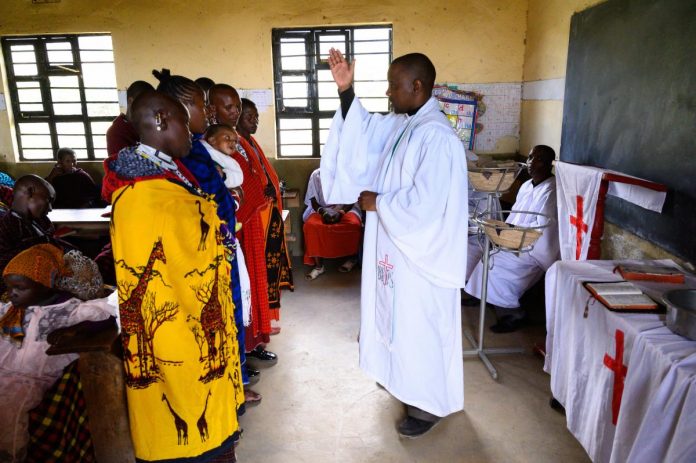An intervention on behalf of the World Council of Churches (WCC) made by Peter Prove, director of the WCC Commission of the Churches on International Affairs, in a recent conference on “The Situation of Christians in Africa” lifted up the concern that, alongside the extraordinary demographic growth of Christians on the continent, churches and Christians in Africa are experiencing an increasing number of violent attacks and other forms of repression.
“One out of four Christians in the world now is African,” the intervention observes, citing demographic studies undertaken by the Pew Research Center, among others. “That proportion is estimated to grow to 40% by 2030, and the number of Christians in Africa to double by 2050.”
This demographic development is also represented in global migration flows. “Currently there are an estimated 258 million international migrants and refugees in the world,” Prove notes. “Overall, about 105 million who have migrated are Christians — a significantly higher percentage than their 33% of the world’s population.”
Prove’s speech also conveys some of the WCC’s biggest concerns. “Alongside this extraordinary demographic growth, churches and Christians in Africa are at the same time experiencing an increasing number of violent attacks and other forms of repression – especially in contexts where they are in a minority situation, but also in other contexts where they are a majority of the population or in a well-established historic position in the life of their nation,” the intervention reads, citing situations of current concern in, among others, Nigeria, Burkina Faso, Mozambique, Ethiopia and Egypt.
“But whether Christians are directly targeted, or whether they suffer along with other members of the community in situations of violence and instability, WCC is increasingly concerned about the impact of such situations on churches and Christians in a significant number of countries on the continent of Africa.”
The intervention also lifted up signs of hope, including examples of inter-religious solidarity and support in many of these country situations as “among the strongest possible responses to the threats described. For the future of threatened Christian communities is inevitably bound up in the life and trajectory of the societies in which they live and witness. Accordingly, Prove concludes, “we must actively, insistently and collectively advocate equal citizenship and respect for the equal rights and dignity of all people in these countries, as a primary strategy for protecting Christians from persecution.”
The intervention was presented on 22 December at an online conference organized by the Russian Orthodox Church and the Russian Association for the Protection of Religious Freedom.
WCC, oikoumene.org














